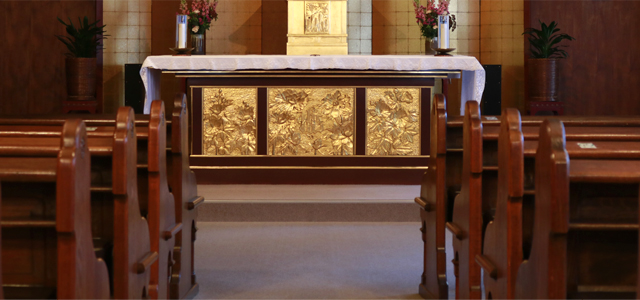
Catholic Q&A
I was informed that both the Bible and Christianity were originally born in Judea, which is a patriarchal society, and that the image of God and the teachings of the faith are all male-centric. Isn’t that a bias?
As you say, the biblical conception of God is probably strongly influenced by the Jewish patriarchal system, and the image of God the Father is at the forefront of the biblical conception. Nonetheless, we need to avoid short-sighted assumptions. There are many different books in the Bible that describe different modes of belief. For example, in the prophecy of Isaiah we have the passage, “Can a mother forget the baby at her breast and have no compassion on the child she has borne? Though she may forget, I will not forget you!” (Isaiah: 49:15). We also have, “As a mother comforts her child, so will I comfort you; and you will be comforted over Jerusalem.” (Isaiah 66:13). As we see here, the heart of God is described in the image of the mother of the world. Also, the believer’s trust in God is likened to a child’s love for its mother. As we are told in the book of Psalms, “But I have calmed and quieted myself, I am like a weaned child with its mother; like a weaned child I am content.” (Psalm 131.2). Here we can feel the maternal aspect of the image of God.
Besides, could not the opposite also be stated? As a man, I at times feel uneasy with the statements in the Bible. For example, the Old Testament often likens the Israelites to daughters, virgins, and brides. In the book of Jeremiah we have the passage, “I remember the devotion of your youth, how as a bride you loved me and followed me through the wilderness, through a land not sown.” (Jeremiah 2:2). People who sin are compared to an adulterous woman, and God, who cares for his people, to a jealous husband. In the prophecy of Hosea we have the passage, “She said, ‘I will go after my lovers, who give me my food and my water, my wool and my linen, my olive oil and my drink.’ Therefore I will block her path with thornbushes; I will wall her in so that she cannot find her way.” (Hosea 2:5~6). In keeping with this tradition, New Testament writers liken the Church to the bride of Christ. (Revelation 21: 2, Ephesians 5: 21-33, etc.). Psychologically speaking, such statements of faith may be easier for women to understand.
However, it is true that theology in the history of Christianity has been mostly taught by men, and hence the understanding of faith, Church institutions, doctrines, and customs have tended to be biased toward a male-centered viewpoint and mode of thinking. Modern-day “women’s theology” (feminist theology) points out this bias, and seeks to re-discover the full truth of the Bible from a woman’s perspective. I hope this flourishes even more, because the Christian faith needs to be enriched.
